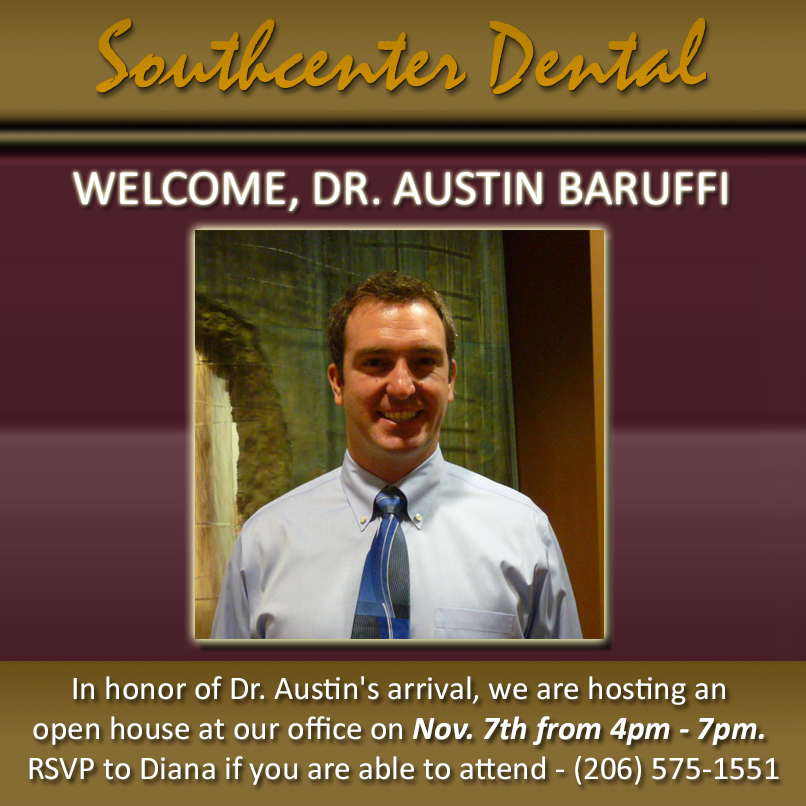Introducing Dr. Baruffi's Son, Dr. Austin!
October 29th, 2013
It is with great pleasure that we introduce Dr. Baruffi's son to our practice!
Dr. Austin Baruffi attended Ostrow School of Dentistry at the University of Southern California, where he earned his degree. Since graduating, Dr. Austin has continued his education, building on his foundation of skills to be on the forefront of dental technology, materials and procedures. He has attended classes on complex full-mouth restorations, oral surgery, implants, laser dentistry, sleep dentistry, and special needs dentistry.
Dr. Austin's interest in community-based dentistry has led him to volunteer with service organizations both domestically and abroad which offer dental care to children in underserved communities. He has worked with the American Dental Education Association to set up guidelines for all groups in the country to improve their efforts to help people prevent dental disease before it negatively impacts their lives.
Dr. Austin has already started seeing patients and is offering evening and weekend appointments for our patients' convenience.
In honor of Dr. Austin's arrival, we are hosting an open house at our office on November 7th from 4pm - 7pm. RSVP to Diana if you are able to attend - (206) 575-1551















 Website Powered by Sesame 24-7™
Website Powered by Sesame 24-7™
